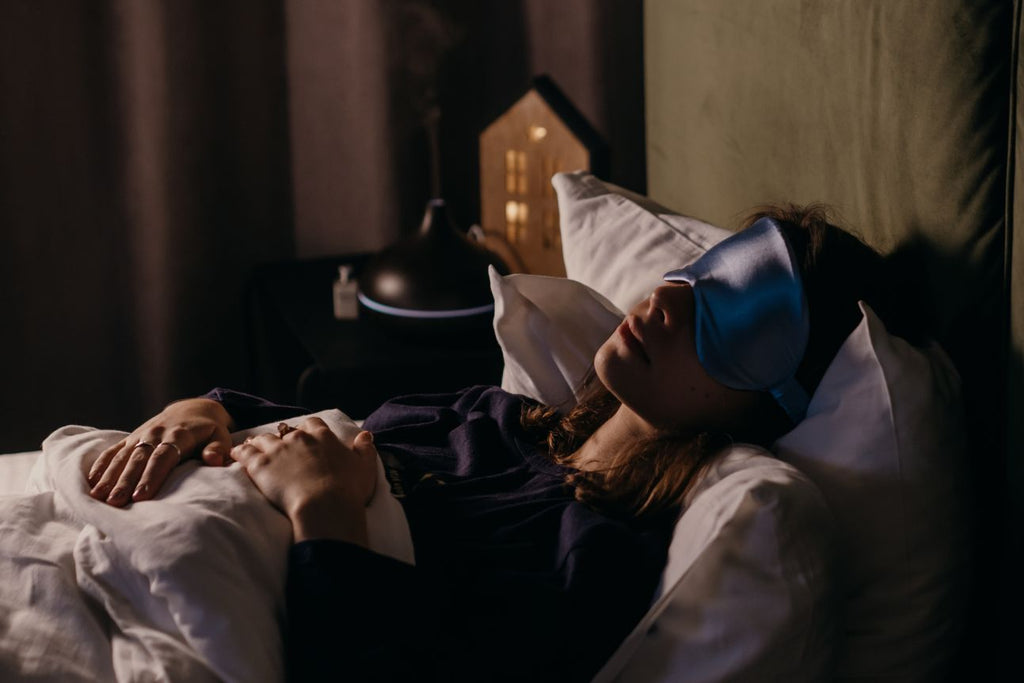Empowering Sleep: Navigating Menopause with Better Sleep Habits

As women embrace the transformative journey of menopause, ensuring restful sleep becomes more crucial than ever. Sleep disturbances and insomnia are a common companion during this phase due to hormonal fluctuations, hot flashes and night sweats, often leaving women feeling fatigued and drained. Fortunately, by integrating wellness practices, spa-inspired rituals, and the power of science-backed solutions, achieving better sleep during menopause is within reach. In this article, we delve into practical tips and empowering insights that align with your wellbeing journey.
Maintain a Regular Sleep Schedule: One of the key pillars of promoting better sleep is maintaining a consistent sleep schedule. Going to bed and waking up at the same time every day, regardless of weekends, helps synchronise your body's internal clock. This practice supports improved sleep quality, making it easier to fall asleep and wake up feeling refreshed.
Creating the Ideal Bedroom Environment: Setting the right bedroom environment plays a pivotal role in ensuring a restful night's sleep during menopause. Consider these factors:
- Bed Linens: Opt for lighter, breathable bed linens made from natural materials like cotton. These can help regulate body temperature and prevent night sweats, a common concern during menopause.
- Lighting: Ensure your bedroom is equipped with darker or low-lit lighting. Harsh, bright lights can disrupt melatonin production, making it harder to fall asleep. Dim, soothing lighting helps signal to your body that it's time to rest.
- Room Temperature: Keep your bedroom at a comfortable temperature. Menopausal symptoms like hot flashes can make it challenging to regulate body heat. Adjust the thermostat or use cooling bedding to maintain an optimal sleeping temperature.
Create a Relaxing Bedtime Routine: Crafting a tranquil pre-sleep routine signals your body to wind down gracefully. Cultivate activities that usher calmness, such as unwinding with a good book, engaging in journaling for self-reflection, indulging in gentle stretching or yoga, practicing deep breathing to enhance relaxation, or immersing yourself in the soothing embrace of a warm bath infused with Olverum Bath Oil. The therapeutic blend of natural ingredients in Olverum Bath Oil nurtures your senses and prepares your body for restorative slumber.

Integrate Essential Oils In Your Night Time Routine: Delve into the world of aromatherapy with essential oils that have proven to be beneficial allies for sleep. Lavender Oil, celebrated for its sedative properties, encourages sleep and alleviates anxiety. Eucalyptus Oil, renowned for its calming effects, supports easy breathing and stress relief. Geranium Flower Oil, with its hormone-balancing properties, proves beneficial for managing hormonal fluctuations, a hallmark of menopause.
Frequently Asked Questions:
- What helps you sleep during menopause? Embracing a regular sleep schedule, engaging in calming bedtime rituals, and harnessing the power of essential oils all contribute to improved sleep quality during menopause.
- Does menopause make it hard to sleep? Yes, menopause often disrupts sleep due to hormonal changes and associated symptoms like hot flushes and night sweats.
- How do you treat insomnia in menopause? Incorporating relaxation techniques, maintaining a sleep routine, and using natural remedies like Olverum Bath Oil can help address insomnia.
- Does menopause insomnia go away? While sleep disturbances during menopause can be challenging, adopting healthy sleep habits and seeking professional advice can contribute to alleviating insomnia symptoms.
Empower yourself during the menopausal transition by prioritising sleep and wellbeing. Integrate the wisdom of spa culture, the science of essential oils, and the art of self-care into your routine. By embracing a regular sleep schedule, engaging in a calming bedtime ritual, and exploring the benefits of Olverum Bath Oil, you're paving the way for restorative sleep and a healthier, empowered you.
Disclaimer: It's essential to seek medical advice for chronic sleep issues or conditions for a comprehensive approach to better sleep.


